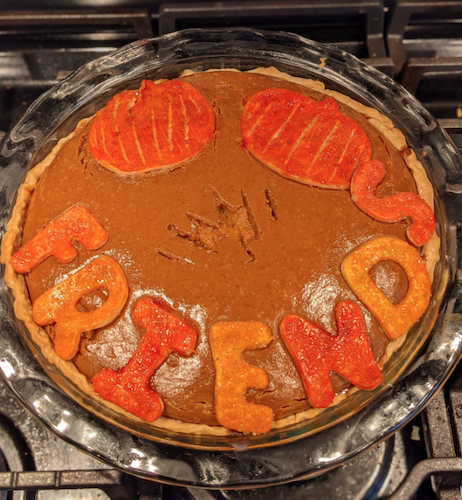With award lists and contest announcements, a flurry of new book deals and agent signings, there’s conversation in the writing community regarding “success”. What does it mean to be a successful creator? How do you know when your book is a success?
Defining success or wondering how we know we’re successful isn’t unique to the publishing world, of course. I thought about this too much in my previous life in the tech industry. It’s a topic most of us think about (and maybe obsess over) our whole lives.
Maybe you, like me, have found yourself saying, "If I can just achieve this one thing, or get to this one place, I'll be happy. I'll have made it. I'll feel fulfilled."
And maybe you, like me, found that when you reached the goal you thought would make you happy, it never really did make you happy. When this happened to me, I felt a temporary high that I thought was fulfillment. But once that flash-in-the-pan achievement-high faded (and it often faded quickly), I felt empty again. So, I’d make up a new goal that I was certain this time would be the marker of success and happiness.
My husband and I celebrating my bucket list achievement with dole whip :)
Enter the term “moving goal post.”
When I first thought about writing as a career, I was convinced that once I had that elusive book deal life would be a fairy tale from then on. Obviously, right? In a lot of ways, that belief fueled my progress. It was the promise of something better, something more aligned to my values.
Then a funny thing happened, which led to two epiphanies.
In January, I achieved a big bucket list goal (not writing related). For the first time, instead of feeling like I had to set another goal immediately after achieving one, I felt happy. I felt at peace. I felt content. I’ve never felt that way after achieving something. Why? Epiphany One: Most of the goals I’ve chased before weren’t aligned to my values, and as a result, I would move the goal post after the flash-in-the-pan high went away.
Aside from a small group of people, no one knew I accomplished this bucket list goal. I thought about posting pictures and mentally planned the accompanying caption, but I realized I didn’t need to share this with anyone. This was an achievement and moment just for me. And that felt damn good. Epiphany Two: Validation from myself is the true marker of success (instead of valuing perceived markers of success, which are often externally driven or visible, like a job title or award).
All of this reminded me of one of my favorite quotes from the amazing movie, Cool Runnings:
“A gold medal is a wonderful thing, but if you're not enough without it, you'll never be enough with it.”
As it relates to my writing, the “gold medal” is publication, best sellers, a wildly successful series… but as the quote says, if I’m not enough (or my writing isn’t enough) without those things, it won’t matter what “success” bar I reach. The goal post will keep moving as I try to chase “enough.”
Taking a cue from the bucket list epiphanies, I’m redefining success for myself as a writer so that I am enough right now. Creative expression is one of my values. Not awards or book deals or contest wins. It’s writing. It’s story. With that in mind, success for me means writing what I want to write, finding joy in that journey, and loving what I write regardless of what anyone else thinks. If writing is first and foremost for me, it will always be a success.
Don't get me wrong. The career I want to build is 100% as a prolific traditionally published author, but knowing my writing is enough takes the pressure off my dream. It takes pressure off the illusion of time being limited to achieve my dream. It takes pressure off the words I write and the things I'm doing to further my dreams so that I can create from a place of peace and joy.
This doesn’t mean I don’t feel disappointment, frustration, or heck, even some hopelessness when I get rejected or something doesn’t go quite my way. What it means is disappointments and successes don’t define my worth as a creator. I’m the only one who can define that. And I choose to believe that my writing is enough even if I never reach my gold medal writing dreams.
That, my friends, feels like success to me.





